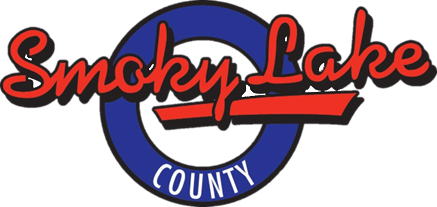Pest and Nuisance Control
Beavers
Smoky Lake County does not trap on private land unless it is impacting County infrastructure (road flooding) in which case we will always obtain landowner permission first to go on the land to trap the problem beavers.
For beaver issues on private land, ratepayers will need to hire their own trapper at their expense.
Policy Statement No. 62-07-06: Beaver Management Program
Agricultural Decision Matrix Tool for Beaver Management
Human-Wildlife Conflict: Beavers
Coyotes
Livestock producers can prevent or reduce coyote predation with fencing, good herd management, guardian animals, frightening devices and various lethal control methods.
Human-Wildlife Conflict- Coyotes
Richardson Ground Squirrels
Rozol bait is a registered anti-coagulant poison. Anti-coagulants are available in several grain bait forms, as well as a liquid concentrate that can be mixed with grain. Anti-coagulants do not pose a significant risk to non-target animals. The most effective time to use Rozol is in late March, after the female ground squirrels have come out of hibernation. To be effective, ground squirrels must consume more than one meal over a two- or three-day period. Rozol can be purchased from most farm supply stores.
Non-Chemical control options such as setting up raptor platforms and nesting boxes to encourage predatory birds to nest in fields infested with Richardson Ground Squirrels.
- Managing Richardson's Ground Squirrels
- Ferruginous Hawk Artificial Nest Platforms Brochure
- Gopher Control with Raptors
- Predatory Bird Nesting Boxes
- American Kestrel-Boreal Owl Nest Box
- Peregrine Falcon Nest Box
Wild Boar
Wild boar at large are one of the most damaging invasive species in North America, and should never be approached.
Non-professional (recreational) hunting of wild boar at-large can actually make it harder for organized control efforts. Boar are very smart. Hunting can make them learn quickly to avoid humans, disperse to new locations and become nocturnal.
Report observations of wild boar at large through:
EDDMapS Alberta, by calling 310- FARM or by
Email: AF.wildboar@gov.ab.ca
Phone: 310-FARM (3276)
Alberta Invasive Species Fact Sheet- Feral Pig
Insect Surveys
Smoky Lake County ASB conducts yearly surveys of specific insect populations on behalf of the government of Alberta. These surveys provide data on potential areas at risk for increased damage caused by these insect species for the upcoming year.
https://prairiepest.ca/risk-maps/
Clubroot
"Clubroot" is a disease of canola, mustard and other crops in the cabbage family (Cruciferae), caused by a parasite of plants (Plasmodiophora brassicae) that lives in the soil and characterized by knobby or club-shaped swellings on the roots and premature wilting, yellowing, and stunted growth of aboveground parts.
Tillage equipment represents the greatest risk of spreading the disease as soil is frequently carried on shovels and discs from field to field.
The Agricultural Service Board, under the authority of the Agricultural Pest Act, will perform random testing of susceptible crop through PCR lab testing.
